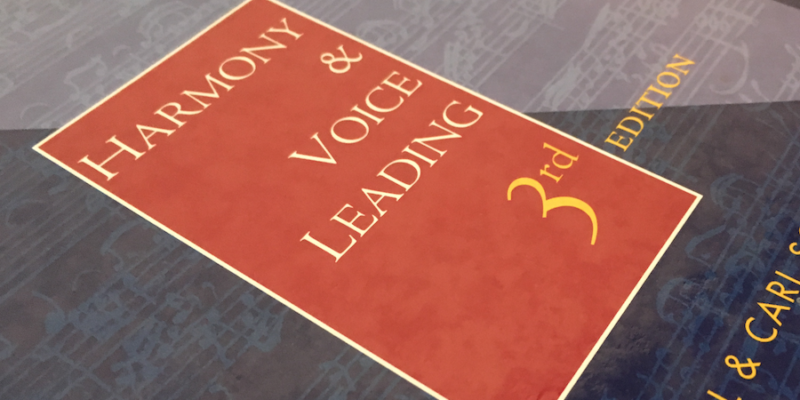
Music theory is a very broad term encompassing everything from reading music to harmony and voice leading and beyond. For the purposes of this article, we’ll be more on the harmony and form side of thing that the rudiments of reading music. I came across this quote about music theory on a classical guitar forum: […]
Read MoreTwo Common Ambiguities in Old Scores
Classical Guitar Repertoire
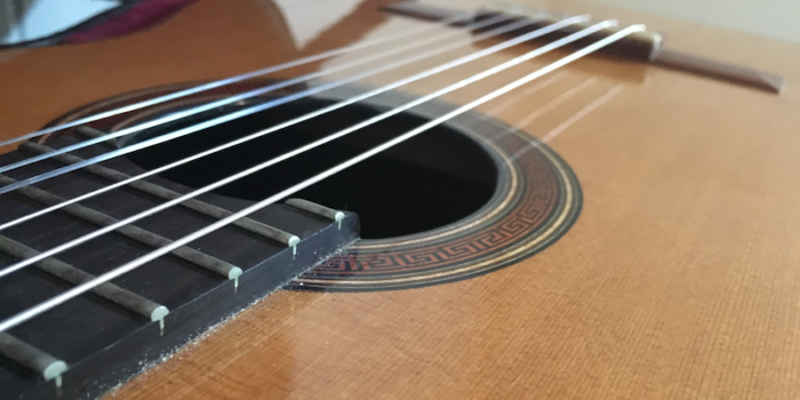
I’ve been learning and it has two common ambiguities that pop up in old scores. Both these things make it seem like the score is saying things it really isn’t. Quarter Rest or Eight Rest? A quarter rest in older editions tends to look like a backwards eight rest. In the image below (taken from […]
Read MoreTwo Types of Left Hand Shifting
Classical Guitar Technique
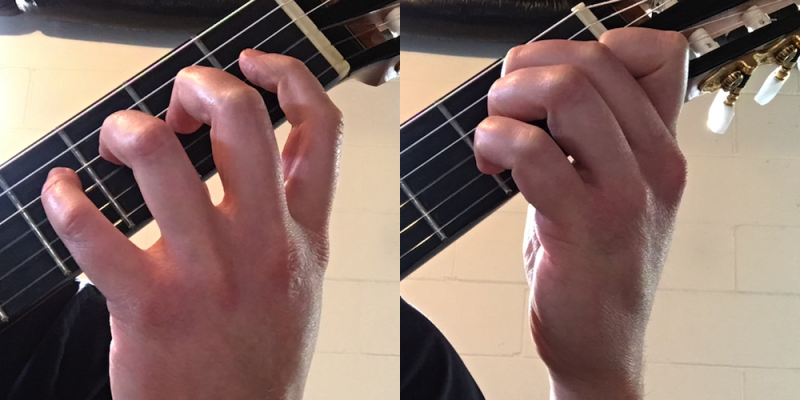
The first type of shifting is something we are all familiar with: shifting up (towards the body of the guitar) or down (towards the headstock) the neck. The second type of shifting, however, is one we all do every single time we pick up the guitar, but rarely think much about: shifting between an angled […]
Read MoreA Barre is Rarely a Barre
Classical Guitar Technique
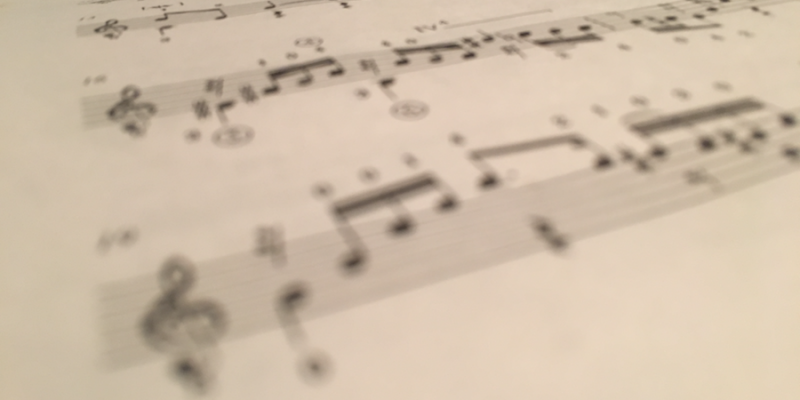
A barre rarely requires that all the strings be pressed down, yet that’s often how barre chords (or bar chords) or barres in general are taught. Take this measure from . This is from the Prelude to the Second Cello Suite. The barre at the second fret, indicated by II5 (barre at second fret across […]
Read MoreNew Year, New Look
Updates & Activities
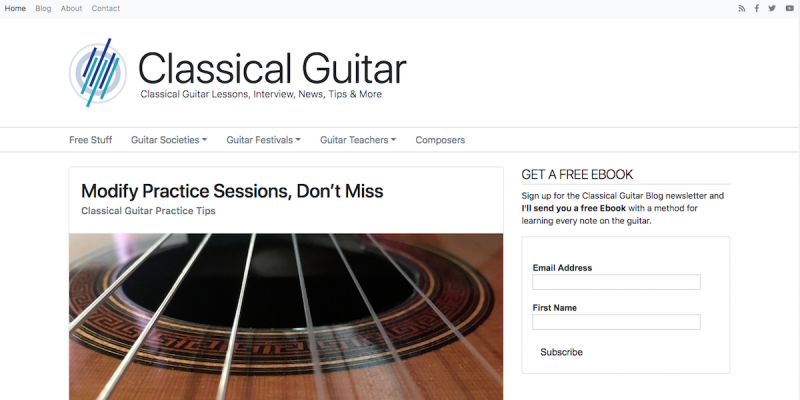
If you’re a frequent visitor around these parts, you may have noticed that ClassicalGuitar.org has a refreshed look. This is the first time this has ever happened since the site started back in 2008. The new look should be a bit nicer to deal with on mobile browsers. Issues? Please reach out.
Read MoreModify Practice Sessions, Don’t Miss
Classical Guitar Practice Tips
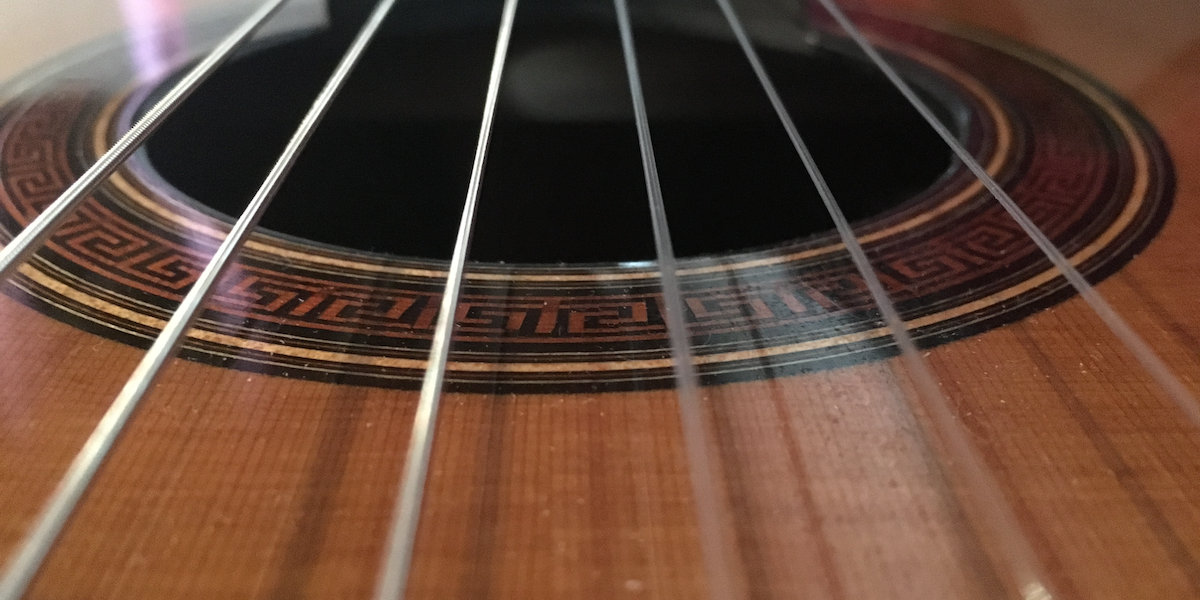
In addition to guitar, another of my hobbies is fitness — specifically lifting weights. I’ve been lifting since 2006 and am fairly plugged into that world. This post’s title is brought to you from a coach named who says, “modify, don’t miss” about training. This is a really great concept for practicing just about anything. […]
Read MoreGive the Repertoire a Break
Classical Guitar Practice Tips
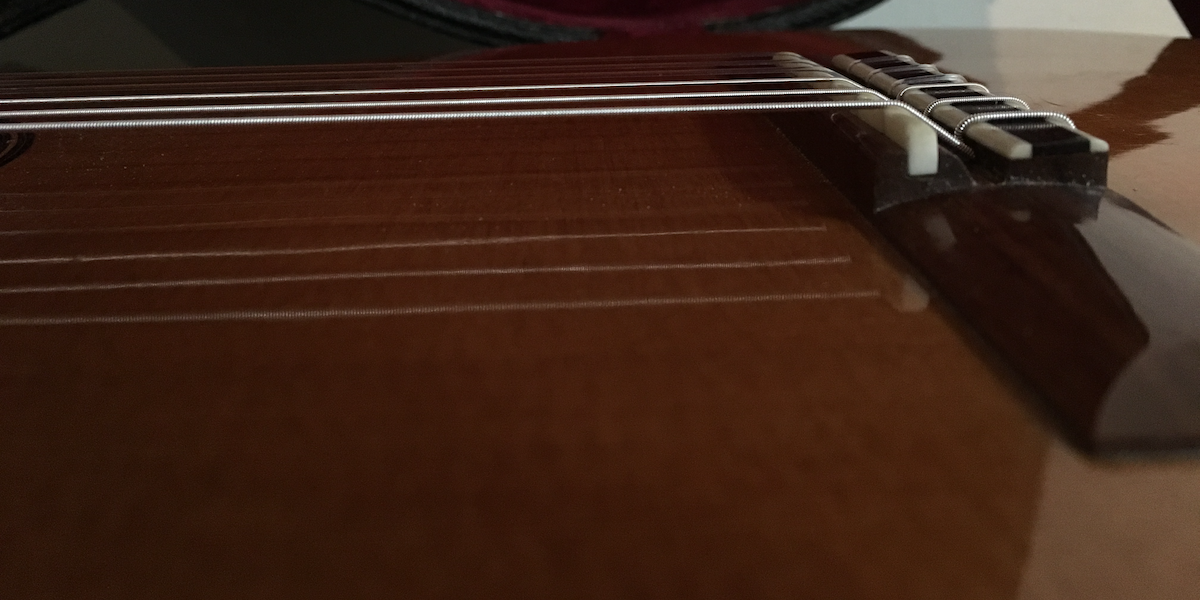
Often times the solution to a difficult piece of repertoire or passage seems to be hammering on it again and again. Or trying to get as many perfect repetitions in as possible. But our fingers get tired; we make mistakes. Our mind gets fatigued, we loose focus, and we make different mistakes. Sometimes what’s really […]
Read MoreHow to Handle Mistakes During a Performance
Guitar Performance Tips
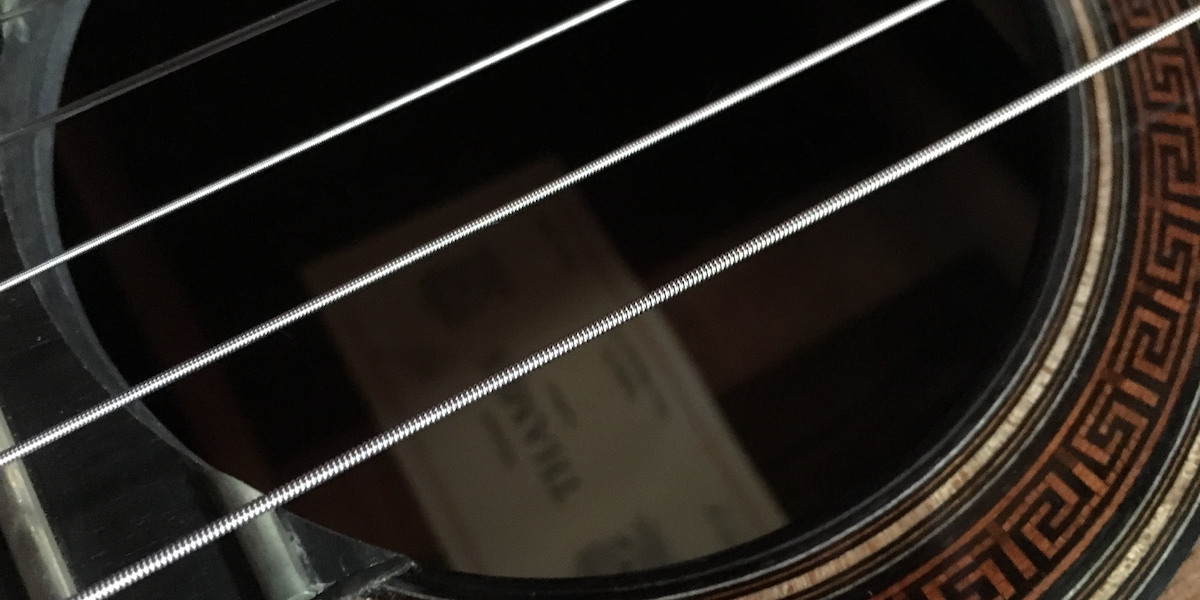
Ignore them. Let go of the mistake and keep going. Performance for an audience, teacher, camera, or even just a practice performance is obviously not practice. There is no stopping or going back unless something goes very wrong. Ignore mistakes and keep going. If you’re at a place of practicing performance in preparation for a […]
Read MorePractice Perfect, Perform Better
Classical Guitar Practice Tips
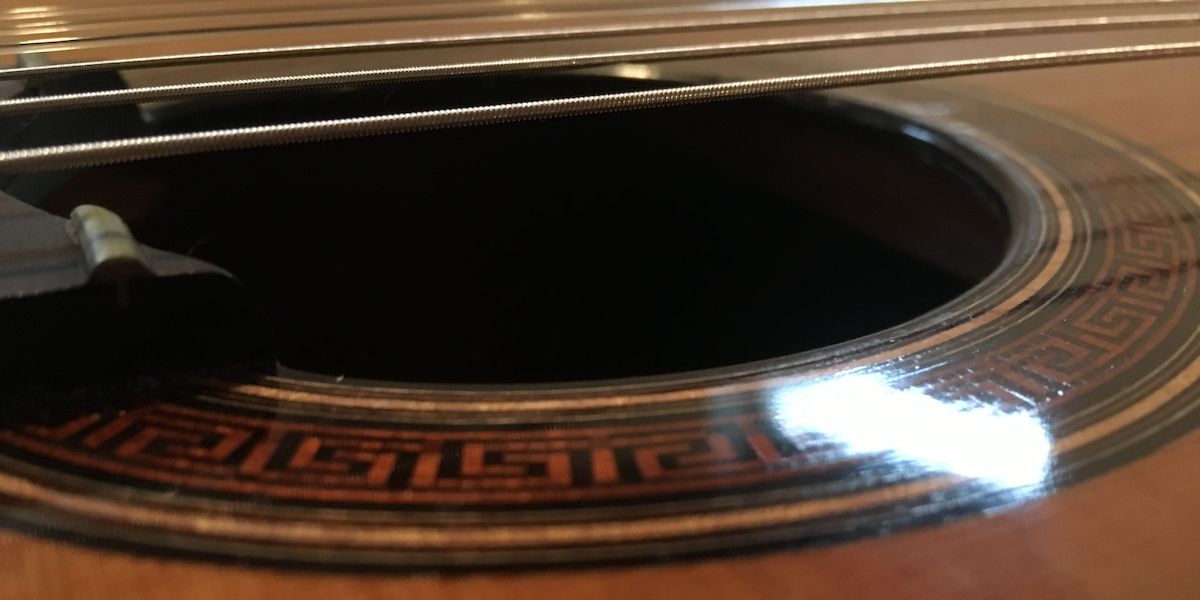
One of the goals of any musical practice should be to never make mistakes during the practice session(s). Every single repetition is a chance to reinforce good movements and interpretation in your muscles and mind. A mistake during practice means some invalid muscle or musical memory slips in. That’s a bigger opportunity for mistakes to […]
Read MoreExplore More Fingerings
Classical Guitar Technique
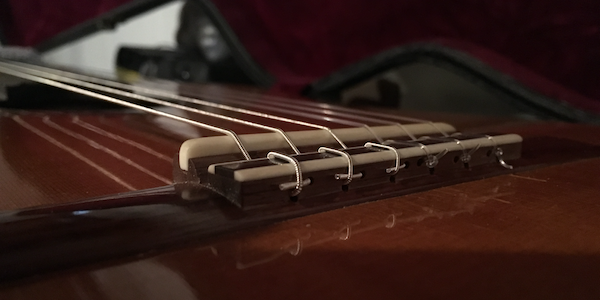
Part of what makes guitar a difficult instrument is there is almost always more than one valid way of playing any given passage. But often times we read a piece, find a fingering that works and that’s that. We never move beyond that initial pass and maybe a few tweaks here and there. That first […]
Read More